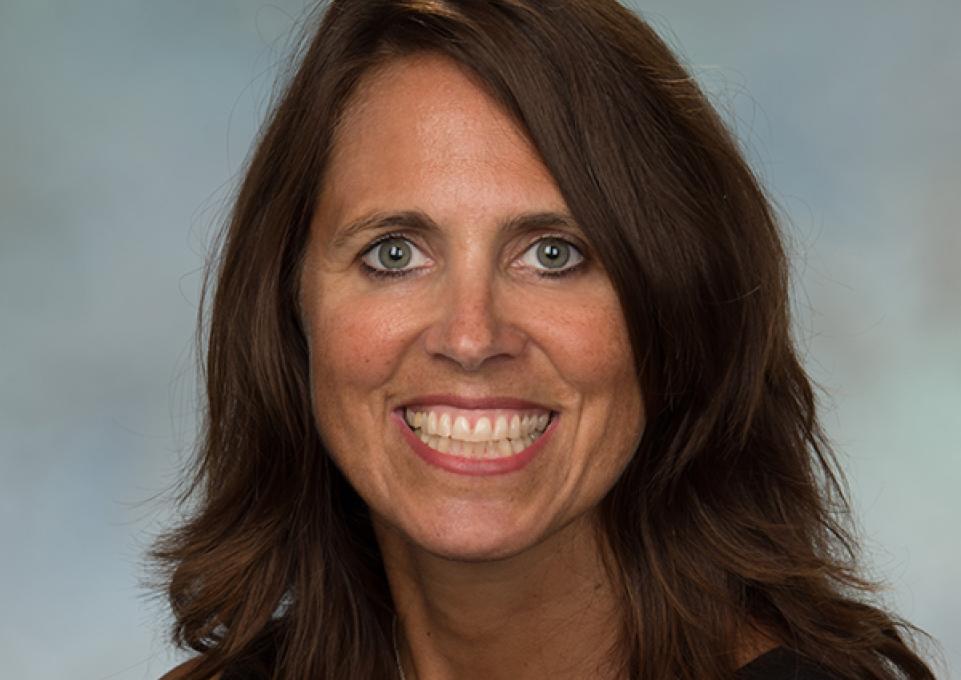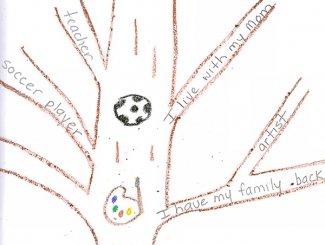
As a former elementary school teacher and mother of three, Sherri Weber, assistant professor of elementary education and reading, understands the importance of chronicling a child’s life. Weber said she has seen how children respond when asked to create a family tree and how it helps them to understand where they fit into the world.
But what about children with unusual or hard to understand family trees, such as those living in foster care? They may not have anyone to map out the storyline in their often chaotic lives. They may not have contact with some of the people in the branches. To remedy this, Weber created a project called Lifebooks in which she tells the children’s stories for them.

In her project, completed under the auspices of the Institute for Community Health Promotion (ICHP), Weber made two prototypes told through the eyes of children who are wards of the state. She used details found in court documents to tell their stories, although names and other identifying details were changed.
“I became the child for each project,” Weber said, and she included realistic entries for what makes the children angry and happy, what they like to do in their spare time, and what they miss from their previous lives. “A Lifebook provides a history from the child’s point of view and helps the child feel connected to others while in the foster care system.”
One Lifebook is for a 12-year-old girl who lives with an aunt and uncle because her mother can no longer care for her; the other is about a 14-year-old boy who was removed from his home due to abuse.
Weber includes such explanatory quotes as, “My mom works in a bar and is there all the time. She has been sad since my grandma died. I miss her.”
She incorporated literature into the projects, using children’s books such as My Many Colored Days by Dr. Seuss and Edward the Emu by Sheena Knowles, to focus on feelings and present a jumping-off point for children to share details of their lives. She also created a “future family tree,” in which the child can list what she would like her family to look like.
She shared the Lifebooks with Buffalo State’s Center for Development of Human Services (CDHS), and its child welfare unit plans to use them in training new child welfare workers.
“It will show them an example of an activity that parents, children, foster parents, and adoptive parents can work on collaboratively to support a child’s well-being by promoting attachment and a sense of belonging and self-image” said Wendy Mornelli, senior manager for ICHP/CDHS child welfare development programs. “It can also help reduce the effects of trauma that occurs as the result of a child being removed from their biological parents and placed in foster care.”
Projects that the CDHS takes on, such as this one, respond to what the New York Office of Child and Family Service needs, said Gail Daniels, senior manager, collaborative research initiative for the ICHP.
To Weber, the Lifebook project has been rewarding and it’s something she would like share with her teacher candidates, too.
“We can encourage this kind of reflection in all children,” she said. “It’s not a skill that naturally develops.”
About Sherri Weber
Weber joined the Buffalo State faculty in 2010 as a lecturer and moved to the tenure track in 2014. She previously taught part time at Canisius College and worked as an inclusion teacher for third- and fourth-graders in the Depew Union Free School District. She currently teaches courses in reading methods and theories and an introduction to literacy. Her research interests are in urban education, literacy, and pre-service for elementary school teachers.
About the Center for Development of Human Services
Established in 1976 by a small group of Buffalo State social work faculty, the CDHS is included within the ICHP that began operation in January 2014. The CDHS has evolved into one of the largest state-funded social services training providers in New York State, with training facilities at its Buffalo headquarters and at four other regional offices across the state. Through partnerships with Buffalo State, the University at Buffalo, and the local educational community, CDHS connects the most recent academic research and scholarship to the immediate needs of the workforce and the community.
